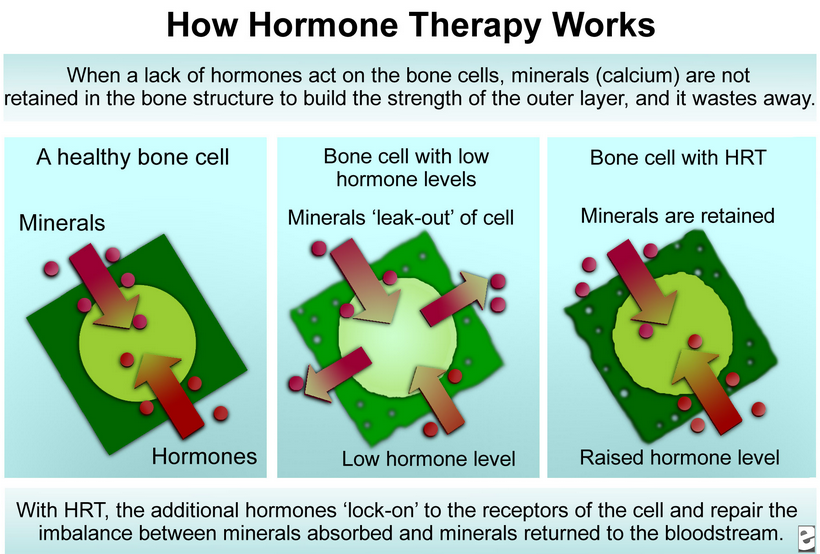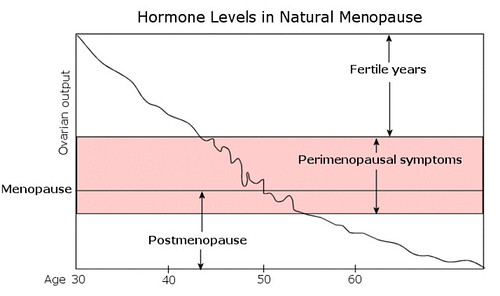Anxiety in Women
Low Testosterone and Anxiety in Women
 In the body of a woman, there are hormones that are charged with very crucial functions. The most dominant hormones in the body of a woman are the estrogen and the progesterone hormones. These hormones control many aspects of a woman’s life especially the estrogen hormone which is available in the bodies of women in high levels than any other hormone. These hormones are even responsible for the way a woman looks; their skin glow and even how they age. However there is another hormone that also plays vital roles in the body of a woman yet not so dominant in their bodies. This hormone; testosterone is popular for all its much needed sexual functions that are always associated with men. In fact it is more dominant in men, where it is produced in higher levels in the testes but it is also available in women though in low quantities yet it has just as vital roles in the body of women as in the bodies of men.
In the body of a woman, there are hormones that are charged with very crucial functions. The most dominant hormones in the body of a woman are the estrogen and the progesterone hormones. These hormones control many aspects of a woman’s life especially the estrogen hormone which is available in the bodies of women in high levels than any other hormone. These hormones are even responsible for the way a woman looks; their skin glow and even how they age. However there is another hormone that also plays vital roles in the body of a woman yet not so dominant in their bodies. This hormone; testosterone is popular for all its much needed sexual functions that are always associated with men. In fact it is more dominant in men, where it is produced in higher levels in the testes but it is also available in women though in low quantities yet it has just as vital roles in the body of women as in the bodies of men.
Many people still think that testosterone has only one function which is to ensure a good sexual performance but the reality is that testosterone has far more functions that together make your life what it ought to be. So, to the many people who think that deficiency in testosterone hormone can only affect your sexual life, it’s time to think again. The reality is that this hormone has very many roles beyond ensuring a healthy sex life. The testosterone hormone is also crucial in production of red blood cells. This hormone also helps in distribution of fats in the body parts, increasing muscle mass, improving bone mineral density and even regulation of moods in a person. A major symptom of those suffering flooring testosterone levels is low moods.
Testosterone is derived from cholesterol just like all the known sex hormones and is a steroid belonging to the androgen group. DHEA is the immediate precursor to testosterone. Testosterone is mostly identified with males and this might not be so inappropriate (though it is) since it is in males where it is produced as a dominating hormone. This hormone is also produced in females. In the body of females this vital hormone is produced in the ovaries and the adrenal glands. The ovaries function to help produce testosterone even after menopause. This therefore means that women who have their ovaries removed are at significant risk for decreased testosterone levels and the subsequent symptoms associated with it.
Functions of testosterone in females
In women the testosterone hormone has very many functions. Just like in men, it is important for bone strength and development of lean muscle mass and strength in women too. Testosterone also contributes to overall sense of well-being and energy level. It is best known for its crucial role is a woman’s sex drive or libido. Without this hormone, women suffer low sex drive. More specifically, testosterone in women is responsible for the sensitivity of a woman’s nipples and clitoris associated with sexual pleasure. Testosterone not only enhances the sexual mood of a woman, but the experience as well. Just like in men it is also responsible for good moods in women.
However, just like other hormones as a woman is approaching menopause the production of testosterone in the ovaries will decline by at least 50%. Hysterectomy with or without removal of the ovaries will cause a more significant decline in testosterone levels. Also, high levels of stress can divert the precursors for testosterone hormone production in women over to cortisol production and create a further reduction. High stress levels can also contribute to symptoms earlier in the perimenopause when a woman is in her late thirties or early forties. This means less energy, brittle hair, less bone and muscle strength, and a diminished sexual drive. A hysterectomy and some prescription drugs can also result in lower levels of testosterone for women.
Testosterone and anxiety in women
Anxiety is one of the common health disorders. In the past it has never been easy dealing with this problem. However, scientists now know that a person’s genetics and current physical health can play a very significant role in both the development of anxiety and how it manifests. For instance, it’s known that low levels of serotonin, which is a common neurotransmitter, may lead to anxiety and depression, which is why drugs that improve the flow of serotonin are prescribed for anxiety.
 Hormones have also been found to play a significant role in anxiety development. Those that feel as though their anxieties appeared over time despite effective coping strategies and a high overall quality of life may be suffering from hormonal anxiety, caused by any number of problems with hormone balance.
Hormones have also been found to play a significant role in anxiety development. Those that feel as though their anxieties appeared over time despite effective coping strategies and a high overall quality of life may be suffering from hormonal anxiety, caused by any number of problems with hormone balance.
Anxiety is essentially a mental stress and since there are hormones that are associated with moods and stress, a fall in their level will give rise to anxiety. However cortisol which is a stress hormone may also cause anxiety when it is released in excessively higher levels. Testosterone which is known to many as a sex hormone has a purpose to quell anxiety. Studies have shown that women mostly suffer anxiety when the production of testosterone is suppressed. There have been studies on mice that have since confirmed that a drop in the levels of testosterone may cause anxiety in women.







 The estrogen hormone plays crucial roles in the life of a woman. Among other things this hormone is responsible for the maintenance of
The estrogen hormone plays crucial roles in the life of a woman. Among other things this hormone is responsible for the maintenance of 




 Understanding Xenoestrogens And Breast Cancer
Understanding Xenoestrogens And Breast Cancer




 There are natural therapies that can be used in restoring the levels of estrogen and progesterone in the body and calm the sugar craving and break the addiction. These natural therapies may include edamane and black cohosh also known as
There are natural therapies that can be used in restoring the levels of estrogen and progesterone in the body and calm the sugar craving and break the addiction. These natural therapies may include edamane and black cohosh also known as 





 Testosterone therapy has been in use for treatment of women who have problems with their libido for a long time. Its use, however, has not been without controversy. On one hand has been the concern that using testosterone therapy to treat libido problems in women may actually expose them to the risk of developing breast cancer. On the other, there has been evidence to suggest that using the therapy on women actually helps them by preventing the possible development of breast cancer. In this article, the possible use of testosterone therapy to provide protection against the development of breast cancer is examined.
Testosterone therapy has been in use for treatment of women who have problems with their libido for a long time. Its use, however, has not been without controversy. On one hand has been the concern that using testosterone therapy to treat libido problems in women may actually expose them to the risk of developing breast cancer. On the other, there has been evidence to suggest that using the therapy on women actually helps them by preventing the possible development of breast cancer. In this article, the possible use of testosterone therapy to provide protection against the development of breast cancer is examined. Low estrogen may play a role in ‘male menopause’
Low estrogen may play a role in ‘male menopause’

 Male menopause: Testosterone therapy marketing frenzy draws skepticism
Male menopause: Testosterone therapy marketing frenzy draws skepticism Just Published: “Global Hormone Replacement Therapy Market 2014-2018 “
Just Published: “Global Hormone Replacement Therapy Market 2014-2018 “